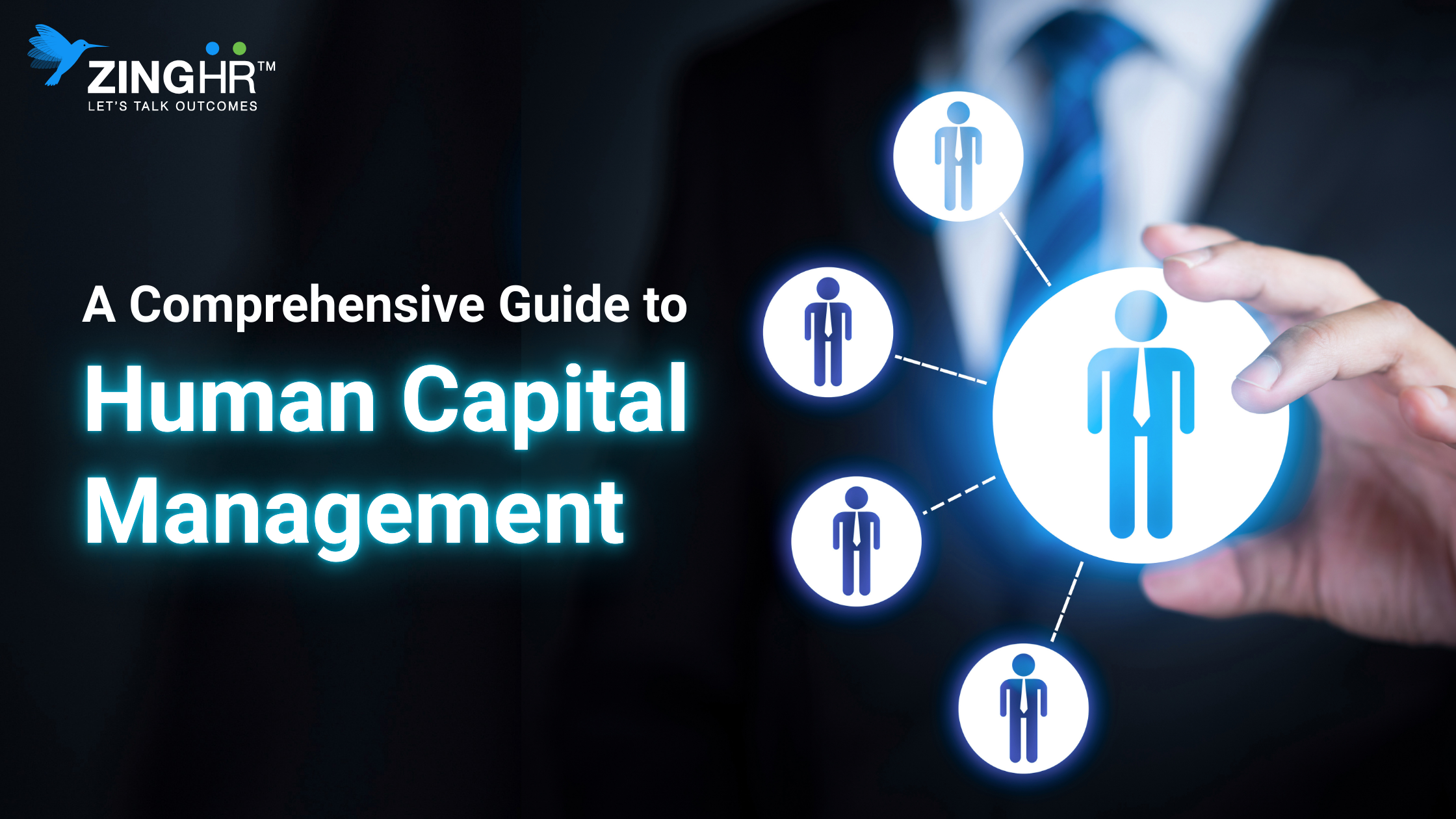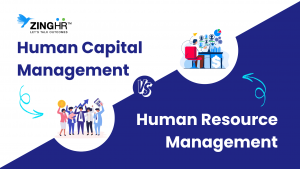In 2025, human capital management (HCM) will go beyond the traditional HR functions. AI and ML are shaping technology and making it more advanced for automating business processes. With its robust capabilities, HCM is transforming hiring, onboarding, payroll and performance management. In light of this development, it’s imperative to view the workforce as a vital asset instead of treating it as just an operational cost. Those workforces are the ones that drive engagement, boost productivity and create actual business impact. Therefore, by strategically investing in people, businesses can harness their full potential while transforming HR processes into a powerful growth opportunity.
If you are still thinking ‘What is Human Capital Management?’ and whether you need one for your business? Keep reading- as we have broken it down into simple terms to give you the crux of leveraging technology into the HR domain.
What is Human Capital Management?
HCM stands for Human Capital Management, HCM software is a comprehensive tool designed to help businesses manage and nurture their workforce effectively. HCM systems integrate various essential HR functions, including recruitment, payroll, benefits administration, performance management, employee engagement, learning and development, and workforce analytics. With a unified system, businesses can ensure greater efficiency, improved compliance, and data-driven decision-making, ultimately fostering a more productive and engaged workforce.
Here are 7 main HCM functions. We’ve broken them down further in the next section.
1. Talent Acquisition & Recruitment: With the advancement of technology, you can conduct robotic interviews with our HCM and scan multiple resumes to automate the hiring process.
2. Onboarding and training: Introduce your new hires to the mobile-first, and truly connected digital workplace and create a more inclusive culture. This approach emphasizes on employer branding as well.
3. Time, attendance and payroll: Enhance business efficiency with our zero-touch payroll feature that integrates all key modules like time and attendance and finance systems to process salaries on time with speed and accuracy.
4. Workforce Management: Enable your employees to focus on priority tasks that add value and streamline manual processes. Most HCM suite offers real-time analytics that helps in data-driven decision-making to improve employee productivity.
5. Payroll & Compensation: Along with the Payroll system, automation helps with all statutory deductions and takes into consideration compensation structure by seamlessly integrating with all HR modules required to execute this task.
6. HR Analytics & Compliance: Get a comprehensive overview of the performance across departments. This feature helps you improve operational transparency and take decisions backed with real-time data.
7. Performance & Talent Development: For any business, it’s essential to gauge the capability of employees to align with business goals. HCM helps to nurture and retain talent through goal tracking, feedback mechanisms and customised learning programs.
Until now you likely have a basic idea about HCM; the full form is Human Capital Management. Therefore, in the next section of this blog, we have additionally split it down to give more in-depth insights. With ZingHR- a complete hire to rehire HCM Suite, you can build a strong HCM strategy that aligns with your business goals, and it directly impacts EBITA margins. Explore the key functions and usage of HCM Software below.
How Does an HCM Software Work? Top 7 steps Explained
Step 1: Talent Acquisition & Recruitment
HCM modules enable identifying and attracting talent across geographies, ensuring their skill sets and values fit perfectly with the company’s goals. This strategic sourcing, employer branding, and effective selection methods, ultimately save time and cost.
For instance, think of a situation where you need to hire a data analyst. ZingHR- Talent Acquisition module helps you shortlist candidates based on the skills required for the job. Once finalised and onboarded, the app helps in a smooth transition enabling an experience, which is cohesive and accelerates new hire productivity.
Step 2: Onboarding and training
Integrating a seamless onboarding and training process is crucial for all HR departments. It helps in employee engagement, retention, workforce management and measuring productivity.
From Video eKYC to induction of new policies through an HCM, companies can eliminate the hassle of manual paperwork after onboarding a new hire. This approach saves time and helps the new employee to get familiar with the systems and regulations without feeling overwhelmed. On the other hand, HR teams can set up a more organised workflow by automating redundant tasks.
Step 3: Time, Attendance, and Payroll
For any business tracking employee time, attendance, and processing payroll efficiently is a huge deal. ZingHR’s AI-powered HCM suite automates these processes, making sure businesses are minimizing payroll errors and staying compliant with statutory laws.
Think of an HR manager struggling with manual attendance and payroll errors. With ZingHR’s Time, Attendance & Payroll module employees just punch in biometrically and the system auto records their working hours. When the HR does payroll it calculates salaries based on attendance and leave data—no manual work required! By month end employees get error-free, on-time salaries making HR’s life stress-free.
Step 4: Workforce Management
Often companies struggle with managing their workforce. This is especially true for large enterprises; having effective workforce management helps optimise productivity and align the workforce with business goals.
As you can imagine in a manufacturing company the HR processes are extremely complex from managing different time shifts to compensation, HR managers struggle to keep track of each function.
To make it simpler, let’s give you an example of an HR Manager Sarah, working at a manufacturing company. She uses ZingHR’s Workforce Management to manage employee scheduling, attendance and compliance. With multi-mode attendance systems and real-time dashboards, Sarah ensures accurate time tracking and payroll processing. Reduces manual errors, increases productivity and allows her to focus on strategic HR initiatives that are aligned to achieve specific business goals.
Step 5: Payroll and Compensation Management
Handling payroll and compensation may sound simple but if you look into the process closely, you will face multiple challenges. HRMS or HCM module automates the process making payroll easy, timely and error-free.
You might have come across situations where your employees complain about wrong calculations, and it causes frustration among both employees and the HR team. Again, this requires reworking and calculating the number of days an employee has worked and checking manually all compliances. What if you automate this whole process and make it easy by integrating time, and attendance data ensuring smooth, timely and error-free salary processing every month? Focusing on employee satisfaction goes a long way in creating a healthy and happy work culture.
Step 6: HR Analytics and Compliance with Laws
Smart HR Analytics helps in workforce planning, decision-making, and risk management. With the smart AI-powered HR dashboard of ZingHR get real-time updates and maintain complete compliance with labour laws and regulatory needs.
Let’s take a scenario of an HR head at an MNC, who is struggling to keep up with labor laws and workforce trends. With ZingHR’s HR Analytics and Compliance module, he gets real-time dashboards for employee performance, attrition, and compliance risks. The HRMS simplifies legal tasks, so payroll and policies stay compliant. Now he makes data-driven decisions and avoids penalties keeping both employees and auditors happy!
Step 7: Performance and Succession Planning
With HCM, foster a culture of continuous feedback and improvement, drive workforce productivity, and develop future leaders for the success of the company.
This one is critical a bit for any organisation, so let’s understand this clearly with an example. Imagine a Talent Manager at a growing Tech company who can’t find future leaders. With ZingHR’s Performance & Succession Planning HCM module, she monitors employee performance through real-time feedback and goal-based evaluations. The process identifies top performers and suggests succession plans for critical roles so business continuity is secured. By following the steps of succession planning organization can foster talent, reduce attrition and build a leadership pipeline easily!
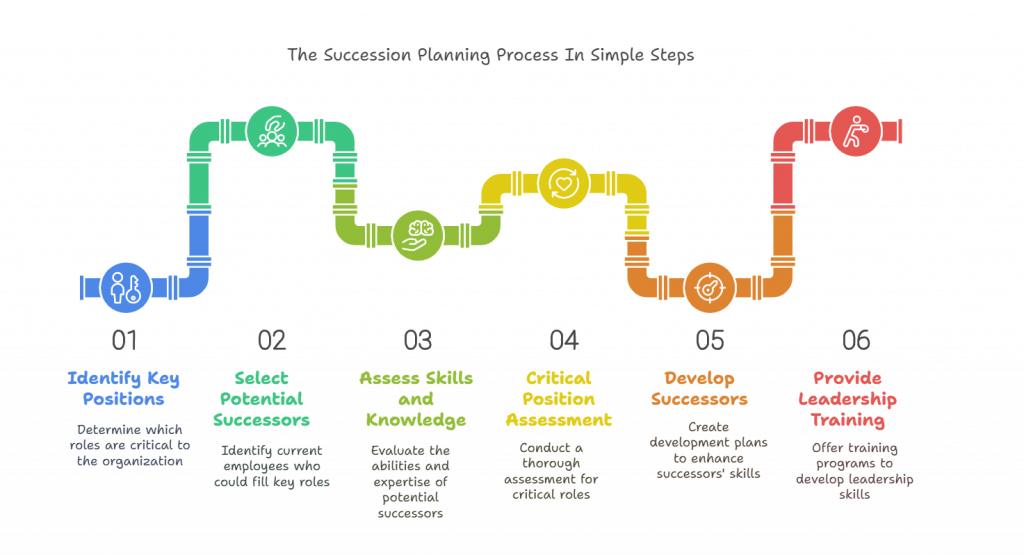
HCM Vs HRMS, HRIS: 3 Differences no one told you about
HCM vs HRMS, HRIS: What’s the Difference?
While Human Capital Management (HCM) and Human Resource Management Systems (HRMS) are often used as synonyms, they are completely two different focuses and functionalities.
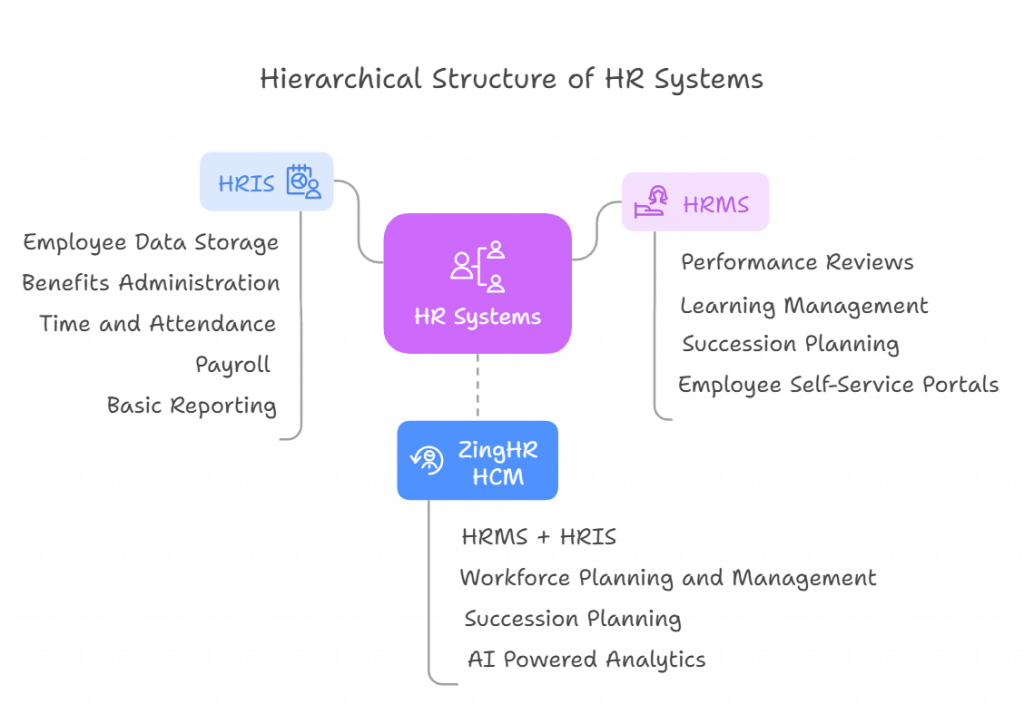
HCM vs HRMS
HCM includes all core HR but goes beyond by adding workforce rewards, talent management and workforce optimisation into a strategy. It helps in utilizing employee potential, aligning their objectives with business goals and improving overall organisational performance.
HRMS (as known as Human Resource Management System)
HRMS is a technology-driven system that automates and simplifies HR processes across the employee lifecycle. It involves applications for time and attendance, compliance, performance management, payroll and employee records management to help HR departments be more efficient and accurate.
HCM vs HRIS
While Human Capital Management (HCM) and Human Resource Information Systems (HRIS) are both important in HR, they are different.
HCM (Human Capital Management)
HCM is all HR functions but takes it further by incorporating workforce rewards, talent management and workforce optimisation into a strategic framework. It’s focused on enhancing employee performance, engagement and development to match business objectives.
HRIS (Human Resource Information System)
HRIS was originally used to manage administrative employee records such as personal details, payroll, benefits and compliance. Over time HRIS evolved into HRMS (Human Resource Management System) and now the terms HRIS and HRMS are used interchangeably to describe technology that automates HR processes.
12 Features of a Human Capital Management
1. Position Management
Manage the entire talent lifecycle track macro-organisational talent trends and plan for future needs in leadership and other key roles.
Wondering how to build a talent pool?
Here’s how you can do it. With ZingHR’s Ai driven Succession Planning solution businesses can identify and develop future leaders within an organization. Our solution offers tools for evaluating key positions, improving skills, and facilitating strategic talent development programs. By unlocking access to hidden data about employee performance over time and fostering cross-functional collaboration, you can build a future-ready workforce. Now is the time to leverage data-backed strategy which can lead to better financial performance, improved employee retention, and preparedness for leadership transitions.
2. HR analytics
HCM uses AI and machine learning to analyse workforce data and provide strategic insights so you can make informed HR decisions.
3. HR Efficiency and Compliance
With changing labour laws and statutory requirements, compliance management is key. ZingHR automates compliance tracking so you don’t get penalised.
4. Multi-Mode Attendance System
Human Capital Management (HCM) system has a multi-mode attendance system that ensures seamless and flexible workforce management. By using advanced technology, HCM solutions offer multiple attendance tracking methods to fit different work environments.
5. Operational Agility
HCM makes any organization operationally agile as it can adapt to the changing needs of the workforce. With an AI-driven HR dashboard that has real-time updates across teams and automated HR workflows, you can allocate resources, focus on productivity and respond to the dynamic business environment.
6. Employee engagement and well-being
You need to create a positive work culture that boosts the morale and productivity of employees. With ZingHR’s AI-powered mood surveys, real-time feedback mechanism and various wellness programs, you can address employee challenges and improve attrition. Employee engagement and well-being programs also invest in mental health support and recognition of the employees in the organization.
7. Travel & Expense
You can manage Travel and Expenses using an AI-powered HCM module. It not only helps companies simplify the reimbursement process and track costs, but also helps in automating approvals and providing real-time reports. It reduces manual errors, prevents deceptive claims, and enhances financial transparency.
8. Employee Life Cycle
From hire to rehire, the ZingHR HCM suite covers the entire employee life cycle, ensuring a smooth experience for HR teams. It automates critical processes such as recruiting, onboarding, performance management, succession planning, and offboarding, reducing redundant administrative paperwork of the HR team. With AI-driven insights, HR analytics, and personalized employee journeys, businesses can come up with strategies that contribute to the organizational goals at large.
9. System Integration
It’s easy to integrate an HCM for large enterprises and businesses. In just a few days or weeks depending on the modules and documentation, the implementation is usually done. It can improve operational processes, enhance employee experience, and maintain compliance effortlessly without any human intervention.
10. Zero Touch Payroll
These days the advanced HCM provides zero-touch payroll meaning it can automate the entire payroll process of a company, eliminating errors and manual discrepancies. It effectively integrates time and attendance and a finance system along with compliance check to process salary on time. Leveraging the HCM module for payroll enhances employee satisfaction at work and allows the HR team to focus on strategic tasks.
11. Allows Customizability & Configuration
Every HCM system is scalable and flexible to the needs of the businesses. ZingHR’s HCM is configurable and can be tailored to adapt businesses’ unique workflows, regulations, and policies. With our flexible HR modules, you can simplify business operations and let AI do the time-consuming work while HR Teams can focus on optimizing processes and contributing to the goals of the company.
12. Make Data-Driven Decisions
HCM centralizes data, allowing for deep analysis and insightful reporting. By leveraging this data, HCM tools can generate forecasts that help employers make informed decisions on important workforce strategies.
If you have made it so far down this guide, you must be interested in leveraging Human Capital Management (HCM) in your HR team. Invest your time in getting more information, or you can simply talk to our experts and get a free demo session to see how it works!
Questions About HCM Functionality
1 . What is the primary function of HCM software?
First and foremost, the role of Human Capital Management software is to streamline workforce management by bringing together main HR processes like onboarding employees, payroll, performance management, Rewards and recognition and compliance under one platform. It enables businesses to make data-driven decisions, automate repetitive HR tasks and boost employee experience. With ZingHR- HCM Software, you get a whole new dimension of each module that enables you to leverage advance technologies like AI, Blockchain and Power BI tools.
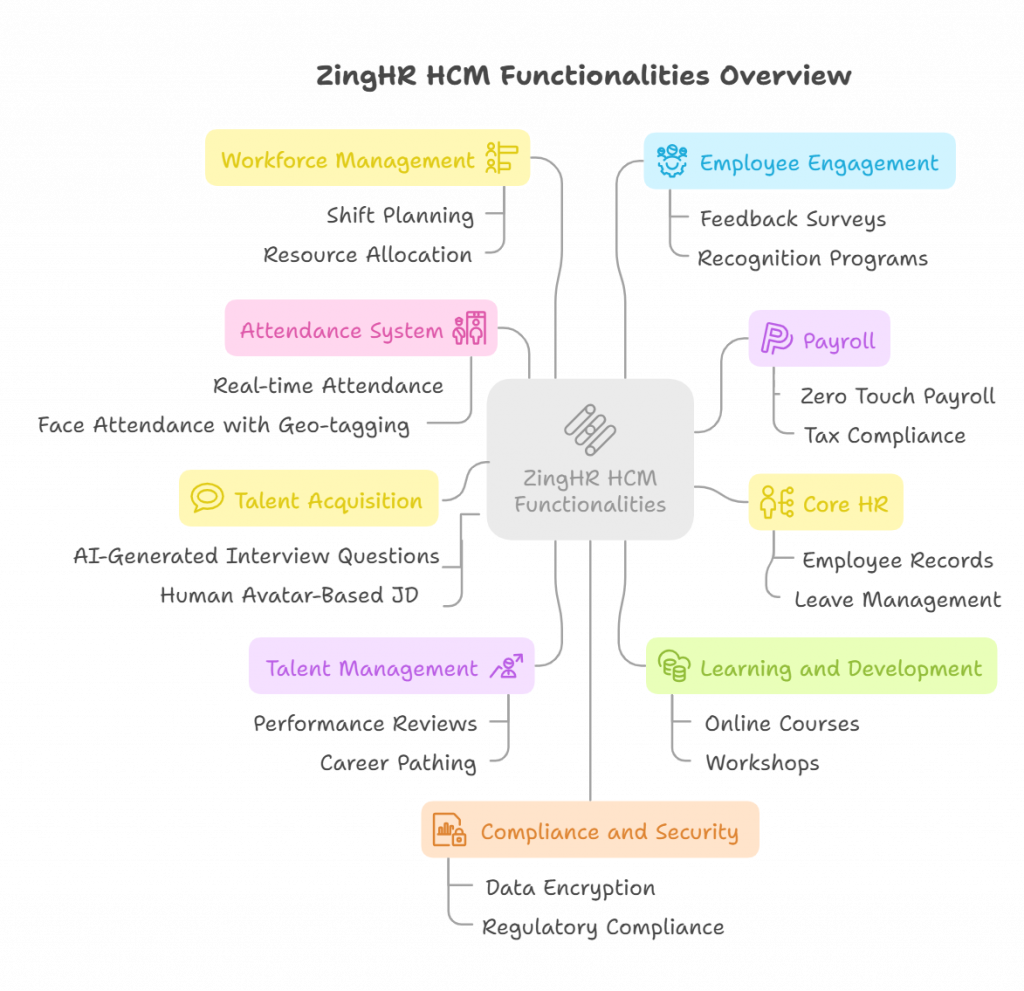
2. Does the HCM Module Provide a Bulk Payroll Processing Option?
Yes, with HCM you can get an option for Bulk Payroll Processing. ZingHR lets you process salaries of over 1000+ employees at one go. With auto calculations, and compliance checks in place, you can integrate it with attendance and other HCM modules, reducing manual effort and errors. Hence, timely salary disbursal and increased employee satisfaction are something you never need to worry about ever in future.
3. How much time can Businesses save by using an HCM Solution?
It goes without saying any HCM can save more than half of the time spent on manual HR tasks like recruitment, payroll processing, attendance management, compliance and so on. However, automation eliminates repetitive work, reduces errors and simplifies workflows so HR teams can focus on strategic functions which involve improving employee engagement and workforce productivity.

